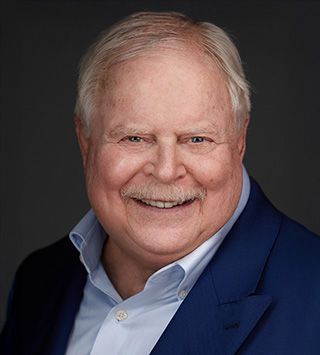Henry H. Perritt Jr. is an emeritus professor of law at Chicago-Kent College of Law. He served as Chicago-Kent's dean from 1997 to 2002 and was the Democratic candidate for the U.S. House of Representatives in the 10th District of Illinois in 2002. Throughout his academic career, Perritt has made it possible for groups of law and engineering students to work together to build a rule of law, promote the free press, assist in economic development, and provide refugee aid through “Project Bosnia,” “Operation Kosovo,” and “Destination Democracy.” He has encouraged his students to think creatively about the relationship between law and technology.
Perritt is the author of more than 75 law review articles and 17 books on international relations and law, technology and law, employment law, and entertainment law, including Digital Communications Law, one of the leading treatises on Internet law; Employee Dismissal Law and Practice, one of the leading treatises on employment-at-will; and two books on Kosovo: Kosovo Liberation Army: The Inside Story of an Insurgency, published by the University of Illinois Press, and The Road to Independence for Kosovo: A Chronicle of the Ahtisaari Plan, published by Cambridge University Press.
He has been a leader in shaping regulations for civilian drones, drafting the Chicago City Council’s first drone regulation, and writing a number of articles on legal strategies for drone operations. He also has contributed to better understanding of the legal challenges posed by generative artificial intelligence and has written a number of articles on the impact of AI on the patent system and on other legal specialties.
Perritt is active in the entertainment field as well, writing several law review articles on the future of the popular music industry and of video entertainment. He also wrote a 50-song musical about Kosovo, You Took Away My Flag, which was performed in Chicago in 2009 and 2010. His novel, Arian, was published by Amazon.com in 2012. He has two other novels in the works.
He served on President Bill Clinton's Transition Team, working on telecommunications issues and drafted principles for electronic dissemination of public information, which formed the core of the Electronic Freedom of Information Act Amendments adopted by Congress in 1996. During the Ford administration, he served on the White House staff and as deputy under secretary of labor.
Perritt served on the Computer Science and Telecommunications Policy Board of the National Research Council and on a National Research Council committee on Global Networks and Local Values. He was a member of the interprofessional team that evaluated the FBI's Carnivore system. He is a member of the bars of Virginia (inactive), Pennsylvania (inactive), the District of Columbia, Maryland, Illinois, and the United States Supreme Court and is a registered patent attorney.
He is also a member of the Council on Foreign Relations and served on the board of directors of the Chicago Council on Foreign Relations, on the Lifetime Membership Committee of the Council on Foreign Relations, and as secretary of the Section on Labor and Employment Law of the American Bar Association. He was vice president and a member of the Board of Directors of the Artistic Home theatre company and was president of Massachusetts Iota-Tau Association, the alumni corporation for the SAE fraternity chapter at MIT.
He is a commercial helicopter, private instrument airplane, and drone pilot, and an extra class radio amateur (K9KDF).
Perritt earned his B.S. in engineering from MIT in 1966, a master's degree in management from MIT's Sloan School in 1970, and a J.D. from Georgetown University Law Center in 1975.

